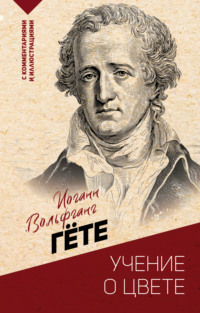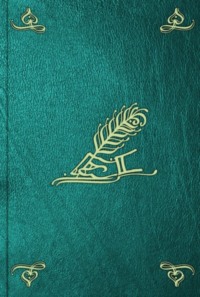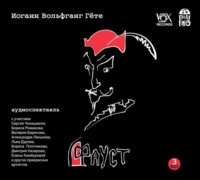 полная версия
полная версияErotica Romana
XVIII
I cannot think I'd have gone with Julius Caesar to Britain; To the Popina right here, Florus would tug me with ease. Fogs of the dreary north remain a more baleful remembrance Than in the kitchens of Rome tribes of assiduous fleas. After today, I'll remember you even more kindly, tavernas, You osterias, as you are called, aptly by those here in Rome. That was the place I encountered my mistress today with the uncle Whom she so often deceives, so that she can have me. Here's where I sat at a table surrounded by good-natured Germans; Over on that side the girl, finding a seat for herself Next to her mother where, frequently shifting her bench, she arranged Nicely for me to perceive profile and curve of her neck; Speaks just a little more loudly than women in Rome are accustomed; Significant glance as she pours – misses the glass with the wine So that it spills on the table, and she with a delicate finger Over its surface can draw circles in damp arabesque: Her name entwining in mine, while my eyes most eagerly follow All that her fingertip writes. She is of course well aware That I am watching, so finally makes the V of the Roman Five, with a virgule before. Quickly, as soon as I've seen, She interlaces the circles, reducing them all to ornatest Patterns – but still the sweet IV stood as engraved in my eye. I sat there mutely and biting my passionate lips almost bloody Half from delight at the ruse, partly from stifled desire: Such a long time until dark, then another four hours of waiting. – Sun, who tarries on high, contemplating Rome: Greater never you've nor shall you in future see greater Than Rome, O sun, as your priest, Horace, enraptured foretold. Tarry no longer today. Go seek other realms beneath heaven. Sooner depart and leave Rome's seven famed hills to me. Please do the poet a favor and shorten the glorious hours Which the painter devours, eagerly filling his eyes. Cast now but one ardent glance, while descending, on noble façades and Cupolas, pillars, and – last – up at the obelisks. Then Hastily plunge to the ocean. Come view all the sooner tomorrow That which, for centuries now, gods have let you enjoy: Italy's shoreline so long overgrown with moist reeds, elevations Somberly rising to shades cast by the bushes and trees. First were but few simple dwellings here, suddenly sunlight discovered Nations enlivening hills teeming with fortunate thieves. Onto this spot they assembled such plunder, in your eye so splendid All earth's remaining orb scarcely was worthy of note. You watched a world being born here, watched the same world sink to ruin, And from those ruins yet arise world again greater, perhaps. O may I long by your light now behold this Rome. May the Parcæ Spin the fine thread of my life slowly, taking great care. O but come rushing the moment my love designated so sweetly. Wonderful! Sound already the chimes? – No, but I heard at least three. Thus, my dear muses, again you've beguiled the monotony for me. Of this long interval while I was apart from my love. All of you now, farewell! I'll be going now – don't be offended. For, though you're proud, you'll concede: Cupid in my heart comes first.XIX
Why did you fail to appear at the cot in the vineyard today, Love? As I had promised I would, long I awaited you there. "Dear, I had almost arrived when I saw, by good fortune, your uncle Standing right there by the vines, looking now this way, now that. Stealthily I slipped away." – Alas, what a misapprehension! You saw the scarecrow, that's all. Nothing else drove you away. Reeds and some discarded garments all hastily cobbled together — I helped to make it myself: diligent in my own grief. "Well, now his wish is fulfilled. The old gardner's most dissolute crow has Left on this day unscathed nice little garden and niece."XX
While there is many an unpleasant sound, I hate to hear barking Worse than anything else. Bellowing dogs split my ears. Nevertheless I do like to hear, and take pleasure in listening To the loud howl of the dog raised from a pup next door. That is the dog that so bayed one time at my girl that he almost Gave our secret away (when she was visiting me). Now, when I hear the dog barking I think my beloved is coming — Or I remember the time, when long awaited she came.XXI
I can tell not only about a discomfort far greater than others, But of a horror besides, thinking of which will arouse Every fiber in me to revulsion. My friends, I confess it: Great displeasure I take lying alone in my bed. But it's a horror to fear on the pathways of love you'll discover Snakes and their venom beneath roses of eager desire — That at the moment supreme, when I'm yielding to pleasure so fully, Right at my head as it droops, hissing disease may approach. That's why Faustina as my companion in bed makes me happy: Loving she always remains faithful, as I am to her. Young men are aroused in their passions by obstacles and by excitement; I prefer to go slow, savoring pleasures secure. Is it not bliss to exchange tender kisses containing no dangers, Sucking into our lungs, carefree, our partner's own life? That is the way our long nights of enjoyment are passed. We listen, Breast against breast, to the storm, pouring down rain in the wind Morning begins to dawn, we expect from these hours approaching Blossoms that will adorn festive the coming new day. Quirites, permit me the joy, and may this, of all pleasures on earth the First and the last, be vouchsafed all of mankind by the god.XXII
Ah, to uphold one's respectable name is not easy. The Lady Fame has an ancient foe: Cupid, my master and lord. Oh, by the way, have you heard of the cause of their mutual hatred? It's an old story, I think – Let me just tell it again. Powerful ever the goddess, but nevertheless to her fellows Overbearing and rude, quite unendurable. She Had by the gods since time out of mind at their banquets been dreaded, Yelling with brassiest voice orders to great and to small. Once, in her arrogance even maintained that she had subjected To her own will, as her slave, Jove's most illustrious son. "One of these days, O father of deities," cried she in triumph, "I shall be bringing you my – Hercules, as if new born. Don't think that Hercules be still that boy whom Alcmene once bore you; His adulation of me makes him now god upon earth. When toward Olympus he gazes, I've no doubt you hope that he's looking Piously toward your knees. Hardly. He's looking for me. Worthiest man! O the vision of winning my favor makes easy Hitherto unexplored paths, under that powerful foot. I do my part, for I meet him halfway and proclaim his adventures Praising his name in advance, even before he's begun. One day you'll wed me to Hercules. Hero who Amazons conquered That day will overwhelm me. Happily I'll call him: spouse." All of the gods kept their counsel, and none would reply to the braggart, Lest in a pique she devise vengeance against one of them. Cupid, escaping attention, slipped off to enslave, however, her hero: Artlessly conquering by – force of a beautiful girl, Afterward decked out his couple in mute masquerade: lionskin Over her shoulders, the club leaned (by much toil) at her side; Wiry stiff hair of the hero larded with blossoms, a distaff Laid in his fist, to conform strength to the dalliance of love. Scene now completed and ready to tease, he goes scampering, shouting For all Olympus to hear: "Come, see these glorious deeds! Heaven and Earth and the Sun on his indefatigable journey Over that infinite path never did witness the like!" Everyone hastened, gulled by the dissolute boy, who feigning Earnest, had summoned them all (Fame by no means lagged behind). Which of the gods will now smile in sweet condescension on Cupid? – Juno! delighted, of course, seeing a man humbled so. Fame, on the other hand, stood there ashamed, embarrassed, despairing. First she just laughed, saying: "Gods, be not deceived. It's a masque. I know my hero too well to be fooled by disguises of actors." Soon, though, in pain she perceived: Hercules, none but he. (Vulcan had not been one thousandth so vexed to discover his playmate Under his meshes ensnared, caught with his own lusty friend, Lying just as the wiles of the net at the most crucial moment Deftly embraced their embrace, trapping their instant of joy. How those boys, Bacchus and Mercury, guffawed, and freely admitted: Sweet must be the repose, lying on bosom so fine Of this magnificent woman. They turned to Vulcan entreating: "Do not release them just yet. Let us inspect them once more." And the old cuckold was cuckold enough to comply with their wishes.) As for poor Fame, in all haste, burning with wrath she must flee. Since then no armistice has been proclaimed to the feuding between them. Let her but favor a man, hot in pursuit is the boy. He whom Fame honors most can least defend against Cupid, And her most dang'rous attacks strike the most morally proud. Whoever tries to escape him is dragged down from bad deeds to worse ones. Yes, he will offer you girls – if like a fool you despise These, only then do you feel from his bow the arrows most vicious: Heat of man's love for man, ardent desires toward beasts. For those ashamed of him Cupid reserves the bitterest passions, Mingling for hypocrites their pleasure in vice and remorse. But, at the same time, the goddess seeks him, she's watching and list'ning. Should find him with you, ill disposed will she be: Frighten you, frowning austerely, contemptuously, violently casting Into the worst of repute houses he's known to frequent. Ah, it's the same with me, too. I haven't escaped her, the goddess. Jealously she seeks me out, sweet secret love to expose. I will submit to the ancient law and in silence revere her, For, when great lords fall out, I like the Greeks must atone.XXIII
However comely be strength, or free and undaunted comportment, Secrecy is for a man most important of all. Mighty subduer of cities, Discretion, O princess of nations, Goddess whom I adore, safely you've led me thus far. Now, though, what fate shall befall me? My frivolous muse has now opened – Cupid, the scamp – opens lips hitherto sealed so well. Difficult is it, alas, to conceal the shame of a monarch; Hide it can neither his crown, nor a tight Phrygian cap: Midas has asses ears! the first servant discovers – O horror! Shame of this secret so weighs, Midas unburdens his heart. Into the earth for safekeeping the servant must bury the story, Easing in this way the king: earth must conceal the tale. Reeds in a trice are sprouting and rustling in murmuring breezes: "Midas, o Midas the King – bears the ears of an ass!" Mine is a secret more pleasant, but even more difficult keeping: Out of abundance of heart eagerly speaketh my mouth. None of my ladyfriends dare I confide in, for they would but chide me; Nor any gentleman friend, lest he be rival to me. Rapture proclaim to the grove, to the echoing cliffs perorate it? One can do that if one's young, or if one's lonely enough. I to hexameters tell, in pentameters I will confide it: During the day she was joy, happiness all the night long. Courted by so many suitors, avoided the snares that were set her Now by one bolder than I, now by another in guile, Cleverly, daintily, always slipped past them, and sure of the byways, Comes to her lover's embrace, where he so eagerly waits. Luna! Don't rise yet. She's coming, and must not be seen by the neighbor! Breezes, rustle the leaves: muffle the sound of her feet. And as for you, little poems, o grow and flower, your blossoms Cradling themselves in the air, tepid and soft with love's breath. Wafting, betray to Quirites, as Midas' reeds did with cheap gossip, One happy couple in love, and their sweet secret, at last.XXIV
I in the back of the garden, the last of the gods, in a corner, Ineptly formed, must I stand. Evil the inroads of time. Cucumber vines grow entwining about this primeval lingam, Cracking it almost in two under the weight of the fruit. Faggots are heaped all about me against the cold of the winter, Which I so hate for the crows settling then down on my head, Which they befoul very shamefully. Summer's no better: the servants Empty their bowels and show insolent, naked behinds. Filth, above and below! I was clearly in danger of turning Into filth myself, toadstool, rotten wood! Now, by your efforts, O noblest of artists, I shall recover With fellow gods my just place. And it's no more than my due. Jupiter's throne, so dishonestly won, it was I who secured it: Color and ivory, marble and bronze, not to mention the poems. Now, all intelligent men look upon me in kindness. They like to Form their own image of me, just as the poet has done. Nor do the girls take offense when they see me – by no means the matrons. None finds me ugly today, though I am monstrously strong. Half a foot long, as reward, your glorious rod (dear poet) Proudly shall strut from your loins, when but your dearest commands, Nor shall your member grow weary until you've enjoyed the full dozen Artful positions the great poet Philainis describes.ABOUT THE ELEGIES
Goethe cultivated a special, italianate hand for this portfolio of twenty-four "elegies," so called because he was emulating the elegiasts of Imperial Rome, Tibullus, Propertius, Catullus. The Elegies have never before been published as here, together in the cyclical form of their original conception. Experts even denied that the two priapeia (I & XXIV) were by Goethe at all, although they are in the same hand as the rest. To be sure, these two are not numbered, so that I was long undecided as to just what their proper position might be. At one time I imagined they must belong at the middle of the cycle where at the end of Elegy XIII Priapus' mother summons her son. Obviously Goethe, just returned north from his two years in Italy (1786-88), and alienated from prim, courtly friends (especially since he had taken a girlfriend into his cottage), had no thought of publication when he indited these remembrances of Ancient Rome. But he did show them to close friends, one of whom was the wonderful dramatist Friedrich Schiller. In 1795, Schiller undertook a new periodical, Die Horen. This thoughtful and responsible man initiated the journal with an essay of his own, explaining how forms of entertainment are actually at the same time our primary modes of education. It makes for pretty difficult reading in our present, less interested epoch. But he did break the essay up with diversions solicited from the best minds of his era. For a discussion of all this, see
Professor Worthy's Page
For now, it is enough to say that among Schiller's examples for "aesthetic education," as he called it, were these Elegies by his much admired friend, Wolfgang Goethe. Editor and author made substantial changes for propriety's sake – despite Goethe's having lashed out to the contrary in the first Elegy (which he now suppressed, along with the final one). My attempt has been – for the very first time by the way, in any language – to restore Goethe's cycle to his early conception. Since I have been unwilling to intrude with learned notes, I must apologize for Goethe's many classical allusions, which were as familiar to his own readership as are, in our publications today, the dense references to media celebrities. Modern editors of what they call the "Roman Elegies" bring abundant annotation, and often detail Goethe's own emendations. What I bring here is merely translated from his manuscript in the Goethe-Schiller Archive in Weimar.









